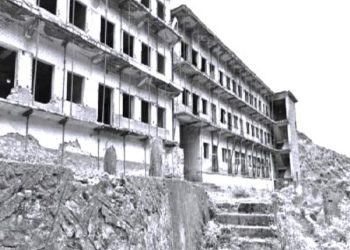By Maksim Rakipaj
The first part
Memorie.al / Maksim Rakipaj, originally from Përmet, whose family had helped and supported the Anti-Fascist National Liberation War, after graduating from the Navy School in Vlora, in 1972 he was appointed an officer in the Merchant Navy, where he served with dedication until in 1977, on the “Durrësi” steamer, he was arrested and sentenced to 15 years in political prison, as part of a “group”, which also included his colleague, Aladin Kapo, the son of Hysni Kapo’s brother. Family biography was also the reason for his punishment. After the end of the war, two of his uncles were sentenced to political prison, his grandfather was declared a kulak and in 1976, his father was expelled from the party. Maksi began serving his sentence in the Ballsh camp and in 1979, he was transferred to the Spaçi camp and then to the Qafë Bari camp. He was released on September 12, 1984, benefiting from a reduced sentence, from an amnesty. After being unemployed for a long time, with many hardships, he got a job as a miner in the Mzezet mine, he worked until 1991. After the 1991s, he started working in the administration of the Municipality of Durrës, he served until 1997 and after that, he returned to the Merchant Navy (the last captain of the transoceanic ship “Vlora”), until he left Albania for Italy, (illegally on a dinghy), where he currently lives for many years. Since the 90s, in addition to various jobs, Maksim Rakipaj has also devoted himself to writing, such as; poetry, prose, fiction or documentary, translations, etc., publishing several books, such as: ‘Prophet – Khalil Gibran’, (translation from English ‘Toena’ 2003), ’20 love poems and a song of sadness’, (translation from Spanish, ‘Toena’ 2003), ‘Alive after the shipwreck’, (published by ISKK, 2014), ‘Bukowski – poetry’, (translation from English, ‘ENEAS’, 2015), ‘Trilusa m’Tirône’, ( translation from Italian, ‘UEGEN’, 2015), ‘Anthology of Arabic-Persian Poetry’ (English translations, ‘UEGEN’, 2015), ‘The Complete Sonnets of Shakespeare’, (English translation, ‘ADA’ 2016′) , ‘Survivor’ (autobiographical novel, ‘2 East, 2 West’ 2018), ‘Nobelists – poetic anthology, (UEGEN 2019), ‘Hymn of happiness’ (‘JOZEF’ 2023), etc. From the creativity of Mr. Rakipaj, Memorie.al is publishing the book “Survivor”, (published in 2022 by “JOZEF” Publishing House in Durrës, directed by Mr. Aurel Kaçulini), where he has described his life chronologically, where the part the main one is that of serving the sentence in camps and prisons, as well as various characters, his co-sufferers that he met in the communist hell, etc.
SURVIVOR
CHAPTER I
Before the arrest
A bit of retrospect, instead of preface
In the first years after the “liberation”, the brutal dictatorship that was established in Albania immediately started the class war, exterminating entire families. Then the country had less than a million inhabitants. Under the teachings of the Yugoslavs and later under the directives of Stalin, in the first years, the annihilation of the so-called “inverted classes” took place. Some of them managed to escape. Those who could not, tried shootings with and without trial, imprisonments, deportations and exiles, or were humiliatingly forced to cooperate with the State Security in order to survive. They did not neglect the war within the species, which they had started during the War.
Enveri who, until 1948, was a blind tool of the Yugoslavs. In the Ministry of the Interior, until recently, a former German SS, who was wanted by the Czechs for war crimes, worked as a specialist advisor? Lemerian camps were set up, such as the one in the Maliqi swamp and many others. I have known people who have tried Maliq. I listened to their stories, shuddering. To this day, I have seen who knows how many films, where the atrocities in the Nazi concentration camps are shown. They have no comparison with the crimes committed by the Albanian communists against the Albanians. No film has been made about the concentration camps in Maliq, Porto-Palermo, about the genocide in Mirdita, in Malesia e Madhe, about the internment sites in Tepelena, Savër, etc. State TV only occasionally broadcasts some footage from the archives of the former State Security.
If any of us tries to write a memoir, we must find a sponsor to publish it. They need money, which former political convicts, who are still alive, do not have. But I was talking about the war dear to Enver Hoxha and his puppies, the “class war”. After breaking with Tito, the leader of Tito, Enver Hoxha, disappeared all those who, according to him, were pro-Yugoslav! Love began with the Soviet Union. Day and night, Radio-Tirana played Soviet music, only Soviet literature was translated, and just like before, the champion of love for Tito’s Yugoslavia, now the champion of love for the Soviet Union, was Enver Hoxha again. When we broke up with the Soviet Union, (this is a mystery that cannot be solved by historians, such as Kristo Frashëri or Xhufi with friends), the pro-Soviets entered the prison, finding the anti-Soviet prisoners there, before ’61. Mao Zedong’s passionate love affair with China began, in prison anti-Chinese. In ’73, we also broke with China. It was the turn of the pro-Chinese, who, even though there were none, were fabricated and shot or imprisoned.
The dictator’s sick mind and soul thought only of finding enemies. When he was done with the “upper classes”, he started a whole war against his own people. As in war once: “regardless of religion, region, and idea”. Poverty increased day by day. But the tension created by the tyrant in the people did not let people think about welfare, which in those conditions was impossible to achieve. The slogan of the day, after the 70’s, was “FIGHT WITHOUT MERCY THOSE WHO DO EVIL, BEHAVE EVIL, and THINK EVIL”. You were forbidden to even think, let alone say what you thought. Former Albanian students (of course, those with good biographies), who had been in the universities of the former socialist camp, fondly remembered the years spent there.
That was enough; they were labeled “enemies” and investigated for espionage. If they couldn’t prove the charge, big deal! They were punished the same! At least 10 years; for “agitation and propaganda, for undermining, overthrowing popular power”. Now anyone was punished. The higher the position, the more severe the punishment. For Politburo members: only shooting, or “suicide” or, “sudden illness”. The people enjoyed themselves. The great propaganda machine of PPSh directed by our Goebels – Ramiz Alia – continued to confess the wisdom of the “glorious” Enver Hoxha, in discovering the “enemies”. The communist old girls were stunned, as if they were going to orgasm: “Pupupu, Enver boy, thank you for saving us! How far the enemy has penetrated us”! When you remember these things today, they seem unbelievable to our children, to those who have not lived through those horrors.
February 26, 1973 – The sinking of the ship “Tomorri”!
– “Alive after the shipwreck”-
I finished my studies at the Naval School in 1972 and after graduating from that school, for us young officers, it was a mandatory internship to work as ordinary sailors, on ships that sailed only within the country. Many of these ships were made of wood. Living and working conditions were very difficult there; they put water in and pumps to get that water out, there was none. The sea water that penetrated inside the ship was extracted only by means of drums, which the sailors were forced to use only with their arms. The speed of those ships was quite low, 4-5 knots, i.e. less than 8-10 km/h. think how heavy a voyage was with them; for example, the Saranda-Shengjin cruise lasted over 20 hours; when you left the next service on the wheel, you had the turn of the drum.
There was no mention of navigation devices. They had only one magnetic compass, which was never compensated. But there were experienced captains in command, who knew the sea, the winds, the currents and the Albanian coast, for its beauty. You had something to learn from them, they were real sailors. I remember many of them and with some, I was lucky enough to work. They taught us many things, but the one thing I will never forget; they taught us that a ship is not just a thing without a soul. The ship is like a living, human being and should be loved as such.
My respects to Muharrem Bazin, Vehbi Lulin, Apostol Xhaxhon, Niko Konomi and all the others. Respect also for Saliu, who is remembered as Salë Krypa, because he always transported rock salt on the Sarandë-Vlora line. When he remembered his father Sal Krypa, he only cursed him: “That damned man brought the books of communism to Albania in 1930 or so with his ship, together with Ali Kelmendi. It’s good that you got Ali, come on! What about that shit books, why didn’t you throw them into the sea”?!
…At the beginning of February 1973, I was assigned to continue my internship with the ship “Tomorri”. Indeed, according to the regulations, the internship was 6 months, but for many young officers, it continued for years. At “Tomorri”, I find Julian Kapexhiu, who had been doing the internship for a year and a half. I also find Ilir Kocilen, who finished school in the same year as me. Iliri was the ship’s nostromo. Our captain was Niko Konomi.
The crew consisted of the captain, the three trainees, mechanic Tefik Myftari, Seaman Bashkim Isaku, Bashkimi the other and Fiqua, who was also our cook. We were located in the port of Saranda. We had loaded 120 tons of coal. The loading was finished around 18:00 and the next day, we would leave to unload at the port of Vlora.
February 25, 1973. The weather is beautiful, like a spring day, almost no wind at all. Along with our ship, there are also other ships in the only quay of the port of Saranda. There is the metal ship “Guri Nazifi”, two other wooden ships, like ours, “Kajo Karafili” and “Zaho Koka”. A little further, there is also a warship, “Kateri i Rada”. Today is Ilir Kocilja’s birthday, he turns 22 years old. We are 5-6 officers, doing internship on these ships and we decide to celebrate our friend’s birthday.
Roland Grabovari invites us to celebrate in his cabin at “Guri Nazifi”, because there is more space. We drink little by little, we make kyfyry, we sing and after 10 pm, we disperse among our ships. Captain Nikua, wishes us good night and orders us to sleep, because tomorrow we will leave early. The weather forecast is very good, according to all meteorological stations. …Strong shocks and the captain’s voice wake us all up around 24: “Quick maneuvers, fortunate. We have to get out of the way, because we are breaking up, crashing into the quay”!
We quickly collect the cymes and go out to Saranda. The wind becomes very strong, over 100 km/h; the sea, which half an hour ago looked like a home aquarium, has gone wild. The temperature has dropped suddenly and it is raining, snowing and hailing together. Captain Niko, looking for a place to drop anchor. We are all preparing the anchor for casting, but since it has been years since it was cast, the anchor and the chains (chains) are as if welded. The captain gives the order: “Drop the anchor”! But the anchor does not fall, no matter how much we strike with the sledgehammer, its anchors. In order not to be carried away by the wind, the first is held firmly by a second, this is held by another and the last one is held behind the balusters.
We are porridge, not only from what falls from the sky, but also from the waves that collide with power on our bodies. We manage to drop both anchors. At last! We say we threw it, when the “Zaho Koka” ship approaches rapidly from the starboard side. From the calls coming from her, we understand that there is a fault in the steering wheel. The strong wind has taken it forward, with all the anchors. The collision is inevitable. The powerful blow is heard, given by the bass of “Zaho Koka” on the right board: one, two… ten… and who knows how many blows!
The wind turns the ship, which starts to hit us from the left side, until it blows away from us. Our ship continues to rock, from the strong wind. Captain Niko Konomi shoots them all one by one with the signal pistol. About two hours have passed since we went out to sea. From the left board, “Kateri i rada” approaches us. The commander of “Kater” tells us that by order of Beqir Balluku, (former member of the Political Bureau of PPSh and Minister of People’s Defense) who is on vacation in Saranda, we must abandon the ship and go with the whole crew. to the warship. Unanimously we decide not to abandon the ship, because we have hopes, since the wind is blowing, we can save it, if another ship tows us.
We start to take out and prepare the cymas, for a possible towing. We have all the pieces of porridge; we don’t have any more to change. However, we all work with all our strength, under the command of Captain Nikos. Before 6 o’clock in the morning, we see that the metal ship “Guri Nazifi” is approaching, to tow us. Our ship continues to sink; the sea water has passed the floor of the engine room. To raise the anchors, with the power of the arms, no time waits. We start sawing with a hacksaw, the anchor rods. We saw the right one and continue to saw the left anchor.
“Guri Nazifi”, makes three attempts to tow us, which fail due to wind and currents. From the other ships, the calls of our friends reach us, telling us to jump into the sea that the ship is sinking. “Guri Nazifi”, withdraws from towing efforts. “Kateri” approaches to take us on its deck. Ilir Kocilja, wraps the ship’s documents with his life jacket and gives them to the captain, who passes them with difficulty to the port captain, who is with “Kateri”. Our captain, he didn’t wear his life jacket, so as not to panic.
Ilir Koçilja and I are sitting in the middle of the ship’s deck, waiting to board the last one, on the next ship. Water comes out on the deck; Julian Kapexhiu and Bashkim Isaku, jump into the sea. “Kateri” moves back, so as not to ride on top of us! …I remember only a loud noise and the ship plunging headlong into the sea, pulling me with it, several meters under the sea. Tranquility. Absolute calm, beautiful music in the background, wonderful colors…I see all my people, finding out about my drowning…a few moments later, I see myself on the water.
The lifeguard does her job. I see many heads above water. Bashkimi and Juliani swim to the ship “Zaho Koka”, its crew helps them to climb up. I see Niko Kono, who is lost, his head, no longer visible on the surface. I swim in the direction I saw him, a little ahead; Niko’s head comes out of the water, I stretch out my arm and take him on my back…! “Don’t worry, Makso, your lifeguard, he’ll keep us both until Kateri comes to pick us up,” Niko tells me.
Finally, after gathering everyone else, “Kateri” approaches where I was, with Nico on his back. They throw a ball at us and Niko is taken up. They throw the bait for me too. I grab it tightly with both hands, but my arms no longer work. Four or five sailors pull me up and, holding me by the arms, take me to the kitchen, where I feel quite warm. They give me a pair of military underwear, and then take me to the sailors’ bedroom.
I start counting my friends: me one, Niko two, Shakmiki three, Tefiku and Fiqon five. Joining Isaku and Julian, they are at “Zaho Koka”. What about Ilir Kocilja? We look into each other’s eyes and we all put our heads under the blanket. We all cry silently, but the bodies that tremble under the blanket betray us. They also bring Julian with the Union to us. They ask with their eyes, without speaking: “What about Iliri”? We hug. Everyone counts. Yes, a number comes out: seven!
We all go to the port scale office, where the first secretary of the PPSh for the district of Saranda is waiting for us. They bring us a bottle of cognac, which passes from hand to hand. The first time we put it on our lips; when the bottle comes to me, for the second time in my hand, I see that there is very little left at the bottom. “Finish it, Max”! Union says to me with wet eyes. Meanwhile, the First Secretary, after speaking with our captain and the commander of “Kater”, talks to someone from the Ministry of Defense on the phone.
Give all our names. At the end, he says what we all guess and we don’t want to believe: “Ilir Kocilja, that’s the name of the drowned man. The ship “Tomorri” took him with him, at the bottom of the sea”!
I am Iliri’s closest friend. I don’t have anyone to take out what I have, and I get out a sob: “Ahh, take Lirooo, who lost his life, for a rotten ship”! The first secretary frowns and menacingly, addresses me: “Who are you, moron, who talks like that about socialist property?! He protected that property with his life and you talk to me like that”?!
I can no longer see from my eyes: “Get this shit out of my eyes, because I fed it, for God’s sake! What are you talking about socialist property, you shit! Did you know that Liri turned 22 last night?! Huh?! All those rotten things should go to the bottom of the sea, but not Liri the desert, take a dog”! A police officer says something in the secretary’s ear and he goes out, without feeling it. From the port warehouse, they bring us to wear work clothes. We change and remove the military clothes, which are collected and taken by a sailor of the “Kater”. They send us all to the only hotel in Saranda.
I don’t go to the hotel. Until the year ’60-’61, I lived in Saranda. I go to Lefter Mati’s house, we were neighbors those years. Captain Teodor Mukë’s son, who does military service as a policeman in Saranda, accompanies me to Lefter’s palace. I knock on the door. No answer. From outside, the cries of Polita, Lefter’s wife, are heard: “Black, raven, the sea took her, raven, raven…”! When she sees me leaning against the door, she hugs me tightly, crying and laughing together: “Uuuu, thank you, thank you, that the gossip has been opened here, that the boy from Durrës, who comes to Politja, has drowned. I said I missed the point”!
After two days, we take the bus to Durrës. Even here the word was out that I had drowned. Stavri Samara, my friend, joins the army as a motorcyclist in Tirana. Even he, when he accompanied the commander of his battalion to the ministry, found out that I was the drowned one. When you see me alive, you can’t believe your eyes. For me, it’s like a part of me has been drowned because I’ve lost a good friend. I have a hard time accepting his death.
…A few days after this event, the entire crew was invited to the reception given in our honor by the port administration. There was also Iljaz Reka, the first secretary of Durrës. I had heard good things about him. He asked us all, one by one, about our name, origin, duty. He said to me: “You, who are the master, open the champagne for us”! When he raised his glass to congratulate us for being saved, he said wistfully: “I was thinking of waiting for you with great ceremonies at Zog’s palace. You are heroes that you all deserved, but we cannot celebrate, because you have lost your friend and my heart cries, along with you. We will distribute you among different ships, so that your bravery goes to all our ships”!
After they gave us a week’s rest, they sent us all to the ship “Rinia”, which was in the shipyard, for repairs. To corrode its rust. Payday came. Since the company’s plan was exceeded, everyone received a 1/2 salary bonus; for our crew, a full paycheck. During working hours, we separated two by two, to go to the accounting office, to receive the salaries. Around 11 am, Bashkimi returned to Fiqo. It was my turn to go.
– “Don’t go in vain,” said Bashkimi, “they don’t give us our salaries, but we didn’t return the clothes they gave us in Saranda: pants, sweatshirts, shoes, panties…all of them, otherwise we don’t get a single lek.” No, he took my wages and gave me trouble tomorrow. Hand over the panties once, and then get paid. Here is the order from the head of the account…”!
May your memory be eternal, my friend, the unforgettable Ilir Kocilja! My baptism with the sea, which was quite painful…! Memorie.al
The next issue follows




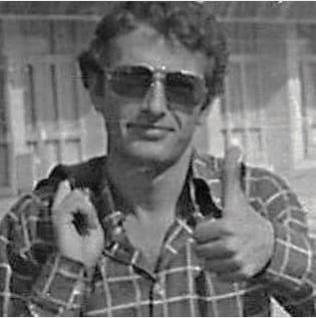
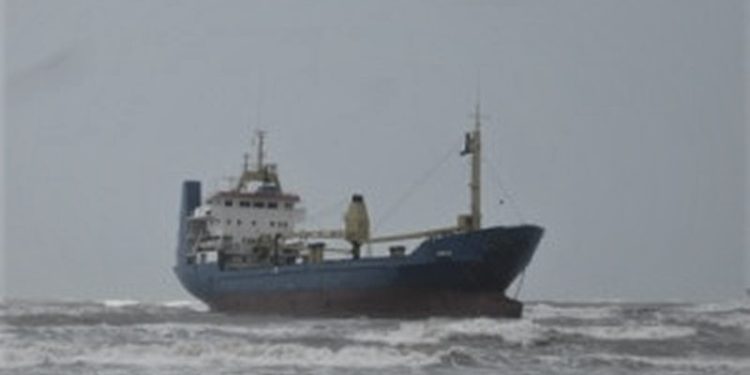
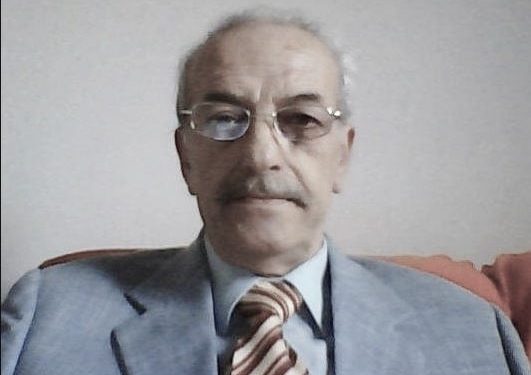
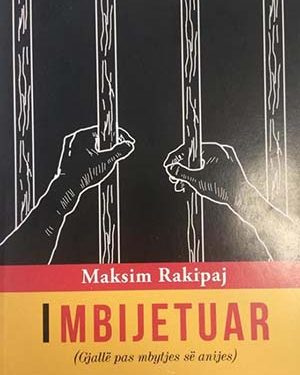
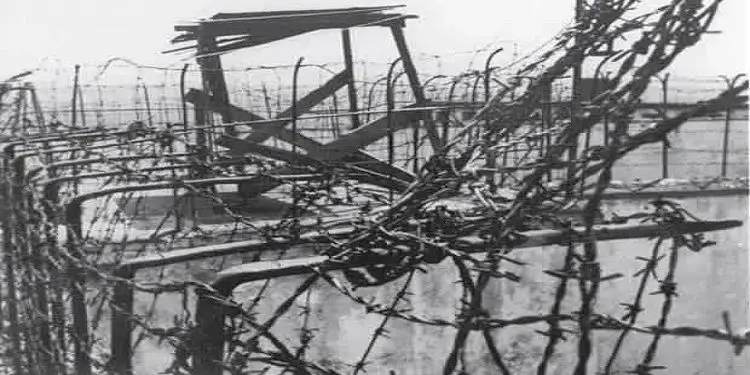
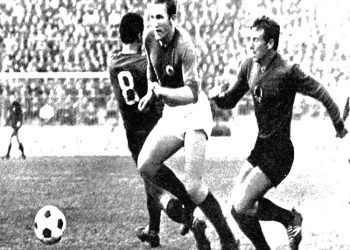
![“In an attempt to rescue one another, 10 workers were poisoned, but besides the brigadier, [another] 6 also died…”/ The secret document of June 11, 1979, is revealed, regarding the deaths of 6 employees at the Metallurgy Plant.](https://memorie.al/wp-content/uploads/2026/02/maxresdefault-350x250.jpg)



